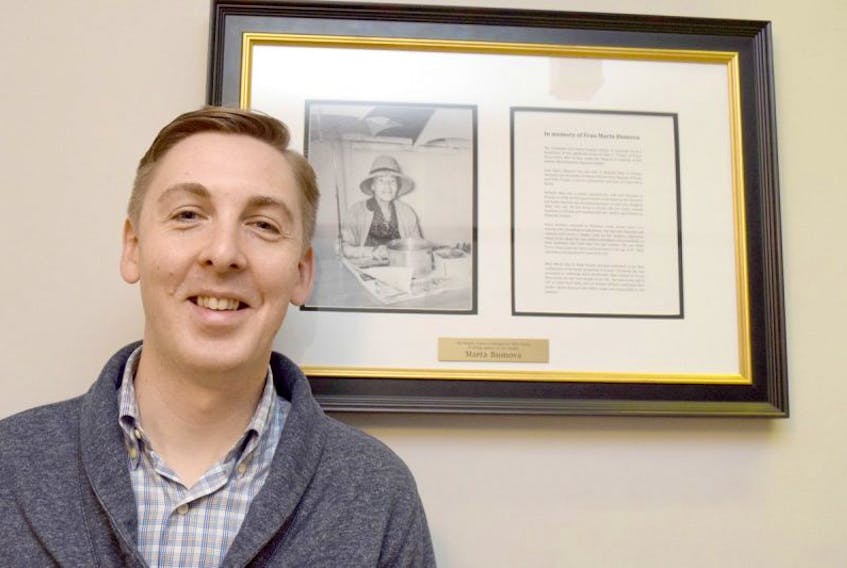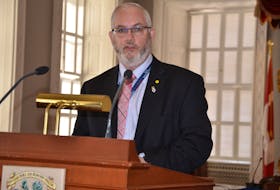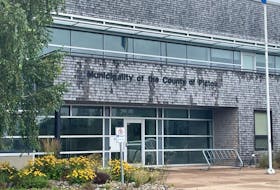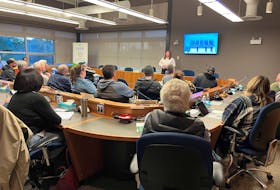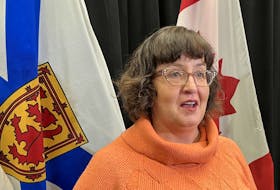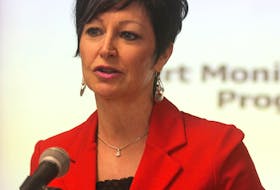It’s been 13 years since the society was formed, and its success has been built on the community.
“Fundraising is at the centre of everything,” said Craig Johnson, executive director of the Colchester East Hants Hospice Society. “It’s community-built and client-driven. It was designed to respond to certain needs and the community response has been phenomenal. We’re just carrying on.”
It started with a handful of people and an idea –they wanted to address issues around end-of-life care. The society has served more than 2,000 families to date.
In 2002, the Robert Pope Foundation issued a grant, which helped the society form in 2003. An office was eventually opened on the Esplanade; social workers for palliative care and grief and bereavement were hired, and programming started.
“Our growth has continued in large part due to the community,” said Johnson.
It was soon evident the office space was no longer suitable for the society’s needs. They had no space to host group drop-in programs, so the idea of a permanent home was considered.
It’s been 13 years since the society was formed, and its success has been built on the community.
“Fundraising is at the centre of everything,” said Craig Johnson, executive director of the Colchester East Hants Hospice Society. “It’s community-built and client-driven. It was designed to respond to certain needs and the community response has been phenomenal. We’re just carrying on.”
It started with a handful of people and an idea –they wanted to address issues around end-of-life care. The society has served more than 2,000 families to date.
In 2002, the Robert Pope Foundation issued a grant, which helped the society form in 2003. An office was eventually opened on the Esplanade; social workers for palliative care and grief and bereavement were hired, and programming started.
“Our growth has continued in large part due to the community,” said Johnson.
It was soon evident the office space was no longer suitable for the society’s needs. They had no space to host group drop-in programs, so the idea of a permanent home was considered.

In 2011, a bequest came from the late Joanne Venner, who wanted her home willed to the society.
“But her home in Valley wasn’t suitable, and her second wish was the house be sold and the proceeds would come to hospice,” said the executive director.
The society’s location on Queen Street was purchased using that money in 2013, with the society moving in in 2014.
“But what’s allowed us to continue was a bequest from Nelly Traxler, the daughter of Marta Bumova,” said Johnson.
Bumova, he said, immigrated from Prussia. During the Second World War, her family owned a mansion and two textile factories, all of which were confiscated by the Nazis. The family fled, with Bumova settling in Montreal, and Traxler’s brother moving to Truro. Traxler, who died in 2008 at the age of 107, moved to Truro from Switzerland 10 years prior to her death.
Traxler had filed a lawsuit against the German government, with the help of the late Lorne MacDougall of Burchell-MacDougall, and received $6 million in the settlement. She left half of her $4 million estate to the society.
“We’ve put that money aside,” said Johnson. “We’ve used part of it to keep us going, but we use it sparingly. Our intention is to continue to grow and expand, so we are being wary and prudent with our spending.”
It costs about $350,000 annually for the society to operate, with increases annually. In 2016, Johnson said, the society ran on a planned deficit, but still below their planned budget.
“We want to get to a place where we have that balanced budget and we’re not dipping into our savings,” he said.
It’s by community donations the society continues to operate. The society receives no funding from government.
And, along with the donations, it’s the strong base of volunteers offering a variety of services that keeps them going.
A group runs a kitchen in the palliative care unit at the local hospital, keeping it stocked and functioning, baking cookies for patients.
“They just do it without thought,” said Johnson.
Others also run a music program, playing songs for patients in the unit.
“A lot of times, people are excited for that visit. It’s pretty magical how the families and patients come together around music.”
For more information on the Colchester East Hants Hospice Society, visit cehhospice.org or call 902-893-3265.
DID YOU KNOW?
The Colchester East Hants Hospice Society’s Food From the Heart program has served an average of 45 families per year since it began in 2005. It offers grocery store gift cards to families or individuals burdened with financial pressure as they face end of life.

